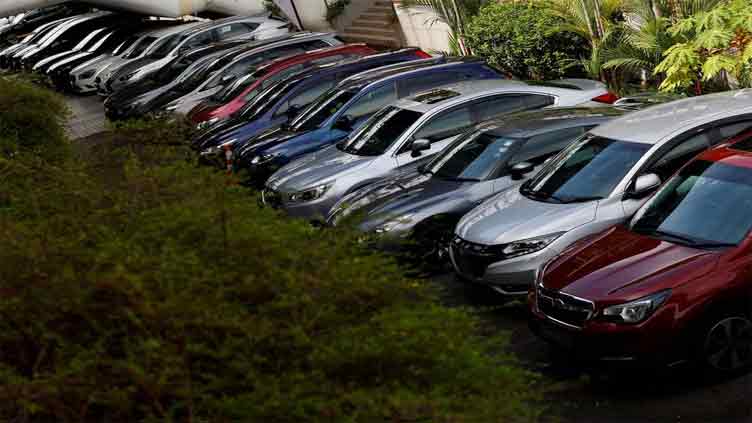[ad_1]

Business
The city state had introduced this system in 1990 to control the number of vehicles
SINGAPORE/LAHORE (Web Desk) – You can do anything in Pakistan easily and get away with that too. For example, hoarding basic commodities is a lucrative business that enables you to mint millions.
On the other hands, there are many other things that you can do legally with no check, like investing your money to open a hospital. You can charge the patients as per your wishes.
But it comes to daily life necessities, buying a car isn’t a crime. Everyone wants to have one as the state has failed to provide mass transit system in cities. Obviously, you need shuttle between your home and workplace every day – besides the regular trips to visit your in-laws.
Moreover, it is also a status symbol with many opting for more than one. In fact, way more than one. Even three, four, five. One each of every person in a household. You can also have two or three for a person too if your finances allow.
However, the problem of this trend means the cities in Pakistan are becoming too much congested, even unliveable.
Singapore, however, is a place where there are financial restrictions so that the city state doesn’t face the situation we face here.
According to Reuters, to own a car in Singapore, a buyer must bid for a certificate that now costs $106,000, equivalent to four Toyota Camry Hybrids in the US, as a post-pandemic recovery has driven up the cost of the city-state’s vehicle quota system to all-time highs.
Singapore has a 10-year “certificate of entitlement” (COE) system, introduced in 1990, to control the number of vehicles in the small country, which is home to 5.9 million people and can be driven across in less than an hour.
The quota, offered through a bidding process, has made it the most expensive city in the world to buy a car, with the COE for a large car more than quadrupling from 2020 prices on Wednesday to a record S$146,002 ($106,376.68).
Including COE, registration fees and taxes, a new standard Toyota Camry Hybrid currently costs S$251,388 ($183,000) in Singapore, compared with $28,855 in the US. A small, government-subsidised flat in Singapore costs about S$125,000.
In 2020, when fewer people in Singapore were driving, the price of COEs dropped to about S$30,000; a post-COVID increase in economic activity has led to more car purchases while the total number of vehicles on the road is capped at about 950,000. The number of new COEs available depends on how many older cars are deregistered.
The skyrocketing price puts cars firmly out of reach of most middle-class Singaporeans, putting a dent in what sociologist Tan Ern Ser said was the “Singapore Dream” of upward social mobility – having cash, a condominium and a car.
The median annual household salary in Singapore is S$121,188.
Singaporeans have been battered by persistent inflation and a slowing economy, and some are selling the cars they bought when COE prices were low to make a profit.
“There is a need to lower one’s aspiration from achieving the ‘good life’ to settling with a ‘good enough life’,” Tan said.
Jason Guan, 40, an insurance agent and father of two, said he bought his first car, a Toyota Rush, for S$65,000 in 2008, including the price of the COE.
Now Guan lives without a car, focusing on other perks that Singapore offers for his family.
“As a family man, it doesn’t affect me much as Singapore still has a good and stable education system. In terms of security, it’s still one of the safest countries,” he said.
‘ ;
var i = Math.floor(r_text.length * Math.random());
document.write(r_text[i]);
[ad_2]
Source link
